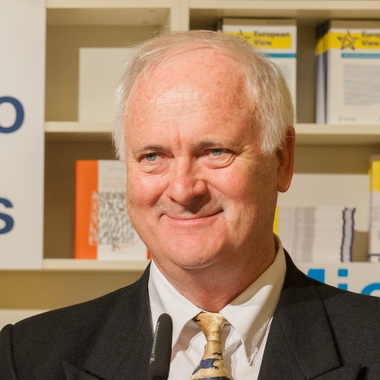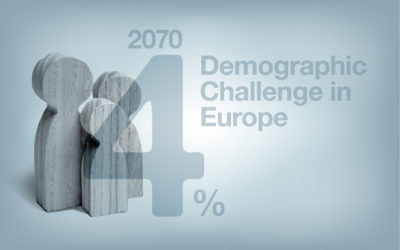David Cameron and the courage of real reform
15 February 2016
The concessions the UK is winning to encourage its citizens to vote to stay in the EU could make the EU even more complicated than it is. They could slow down decision making still further, at the very time when problems are becoming more, not less urgent. This would not be “Reform”. Yet David Cameron says he wants the keep the UK in what he calls a “reformed European Union”.
Already the UK is exempt from joining the euro, exempt from the common border rules of Schengen and does not have to take part in EU activities to combat crime (although it can opt into these on a pick and mix basis). It is a semi-detached member of the EU, which makes it harder for the UK to exercise leadership in the EU.
Now the UK is seeking, and may be granted at a Summit next Thursday, new concessions. These concessions are being sought because UK public opinion is convinced that the EU is undemocratic and should be curbed. They are convinced the only locus of true democracy for the UK is Westminster.
The truth is that neither the EU, nor Westminster are a perfect expression of democracy. In Westminster a party can have an overall majority of the seats with only 37% of the vote. In the EU, while the members of the European Parliament and the Council of Ministers each have democratic mandates, the people of Europe have only a very indirect vote on who is to be the President of the European Commission. EU voters, unlike Westminster voters, do not have a sense that they can throw the EU government out of office.
But, instead of focussing on how to make the EU level governance more democratic, UK negotiators have concentrated on enhancing the capacity of the 28 national parliaments to block EU law making. Given that the UK is a global player, one would have expected it instead to focus on making global and EU wide governance more democratic, rather than slowing things down or simply repatriating powers to the national level.
NEW OBSTACLES TO EU LAWMAKING DO NOT EQUAL “REFORM”
As part of the package devised to respond to UK requests, EU rules are to be changed to allow 55% of national parliaments to apply to have an EU law blocked before it has been properly considered by the Council of Ministers and the European Parliament. This “Red Card” power is to be exercised within 12 weeks of the law having been presented at EU level. This blockage is supposed to be grounded on a claim that the EU law breaches to principle of “subsidiarity”.
Subsidiarity is a philosophical concept around which there can be so many differences of opinion, that it does not constrain this blocking mechanism being used for reasons of pure political opportunism. One could easily envisage an EU law that had been introduced to open up the EU market for legal services being opposed virulently by lawyers in every member state. Or one could imagine an EU law to open up the energy market across borders being opposed by high cost producers in a number of states.
As it is, the lawyers and the energy companies can, and do, already fight such laws in the European Commission before they are presented, and then in the Council of Ministers and the European Parliament while they are being debated, voted upon, and compromised in and between Parliament and Council. Now, to allay UK worries, a new field of operation is being opened up for the lobbyists who want to stop an EU law: the 28 national parliaments of the EU.
EU lobbyists will now be tempted to open offices in the capitals of all member states, so that they can be ready to lobby on behalf of clients to persuade members of national parliaments to use of the Red Card to stop a future EU law a client might not like.
Parliamentary majorities can change and many EU countries are governed by coalitions or minority governments, so one could envisage EU lobbyists seeking to exploit domestic inter party rivalries, or domestic instability, to win support for the use of a Red Card by a national parliament.
All national parliaments are equal in this system, so the 55% blocking vote could come from countries that represent only a small minority of the EU population. It is therefore surprising that the UK, which is a big country, is championing this mechanism.
It is also surprising for another reason. The UK is primarily an exporter of services rather than goods. It is in the area of services, rather than goods, that the EU Single market is furthest from completion. Therefore, services is an area where the EU will need to pass the most laws to sweep aside national restrictions on competition from other EU states.
As a services exporter, the UK would have much more to gain than to lose from the EU Services liberalisation legislation. Yet it is the UK which is seeking a red card that would make it easier for opponents of liberalisation to delay and block EU liberalisation legislation!
PREVENTING THE EURO ZONE TO ACT QUICKLY IN A CRISIS DOES NOT CONSTITUTE “REFORM”
Another proposed concession to the UK could also complicate EU decision making on economic and financial matters. Here the UK concern is about rules being made to govern the euro, which might inhibit UK financial operators making full use of the euro zone market.
On the other hand, as we have learned from the crisis, banking problems in one jurisdiction infect others very easily. UK and US banks were exposed by the Greek crisis and did not complain when EU action protected their interests!
The EU authorities may have to act very quickly if there is a new banking crisis. The EU banking union is not complete, especially as far as deposit insurance is concerned. Yet to satisfy the UK, it is now proposed that a member state, like the UK, that is not in the euro zone, be free to appeal a proposed EU law, which is proposed to safeguard the euro, to the European Council (where it may be able to veto it).
This is despite the fact that it is also proposed, in the special package for the UK, that non euro members are to be freed of any financial obligation for euro area costs and that in non-euro zone countries, supervision of banks be a “matter for their own authorities” according to the text.
The proposed procedure would allow a non-euro member, like the UK, to delay an EU law that is needed, in the view of the states that are in the euro, to safeguard their currency or to ensure the solvency and proper supervision of their banks, in the interests of customers and depositors.
It is unclear what happens when the appeal is brought to the European Council. The European Council usually decides issues by unanimity, so one could envisage an urgent EU law to safeguard the euro or the euro zone economy being vetoed there by the UK, which was not even in the euro. This is giving the UK power without responsibility.
The proposal for the UK does say that “member states whose currency is not the euro shall not impede the implementation of legal acts linked to the functioning of the euro area and shall refrain from measures which could jeopardise the attainment of the objectives of the economic and monetary union”. But these are all matters of judgement on which it may not be easy to find unanimity, especially when time is short, and national interests collide.
BRITAIN SHOULD RAISE ITS SIGHTS
For the past two millennia, Britain has had a vital interest in the peace and prosperity of continental Europe. It has gone to war many times to preserve it. English is the language of EU governance. The EU Single Market is a modern application of the ideas of Adam Smith.
Two hundred years ago, when European states were much less interdependent than today and were recovering from the Napoleonic Wars, the then UK Foreign Secretary, Lord Castlereagh, persuaded the European powers to make, in his words, “a systematic pledge of preserving concert among the leading powers and a refuge under which all minor states may look to find their security”. While his views on Ireland were mistaken, Castlereagh’s views on Europe were not.
Rather than seeking a series of further exemptions and so called “reforms” that will slow even further an already complex EU lawmaking system, David Cameron should follow Castlereagh’s example and set out his country’s own comprehensive vision for the peace and prosperity of Europe.
Then he might give himself a chance of winning the Referendum he has chosen to have.
ENJOYING THIS CONTENT?






















